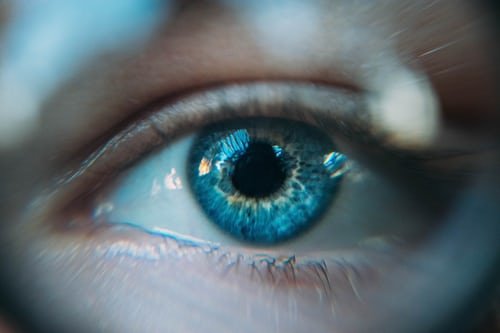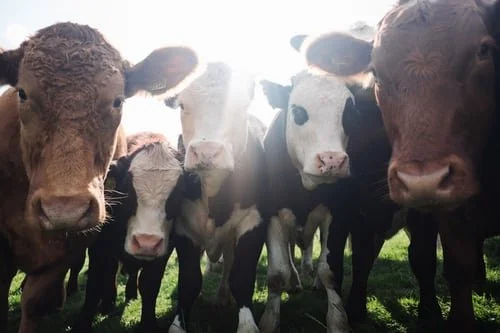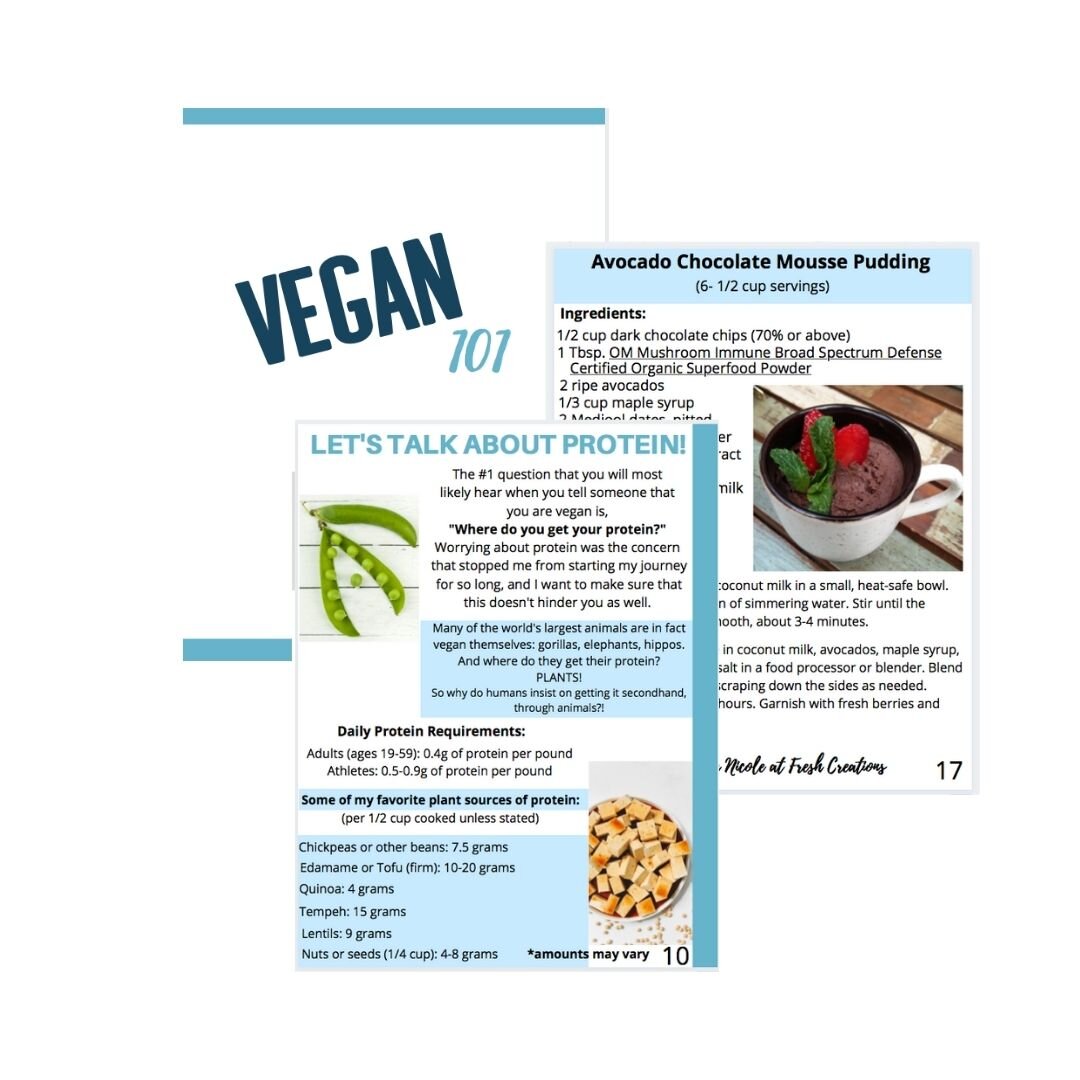Toxins Everywhere? Here’s How to Reduce Them in 4 Easy Steps
/Toxins are everywhere and they are absolutely impacting our health in negative ways. What can we do? Here are 4 easy ways to start decreasing toxins in your life.
Read MoreToxins are everywhere and they are absolutely impacting our health in negative ways. What can we do? Here are 4 easy ways to start decreasing toxins in your life.
Read MoreHave you ever thought about what is in your water and how it could be affecting your health? Find out how much water we should be drinking, what could be lurking and what we can do about it.
Read MoreLentils, lentils, lentils!
Lately, I have been obsessing over these small legumes. Not only are they packed with fiber, protein, iron, and potassium but they are also extremely versatile. Who knew that you could make tofu and pizza with red lentils?!
I have been experimenting with red lentils and have decided that the following 3 recipes are my new, favorite ways to enjoy them. I am not sure that I will ever go back to eating just plain lentils again.

The first recipe is by far and away my favorite. I could not believe that you could use red lentils to make tofu! Although the texture is a bit different, I found that I actually enjoy lentil tofu more than the original, soy version. And of course, one can never go wrong when trying a recipe from Sam Turnbull of It Doesn’t Taste Like Chicken. I hope that you enjoy her recipe as much as I have. Did I mention how easy and fast it is to make this recipe?!
I also really enjoy red lentil pizza dough. I am not sure where we originally found this recipe but here it is:
Ingredients:
3/4 cup red lentils
1 garlic clove (I personally just pour a bunch of garlic powder in)
1/2 cup water
1/2 teaspoon baking powder
1/4 teaspoon salt
Directions:
Preheat oven to 400 degrees F. Soak red lentils for 30 minutes, drain, rinse. Add to a blender with the other ingredients.
Line baking sheet with parchment paper. Pour the batter for the dough and spread. Bake for 20 minutes.
Add a sauce, your choice or toppings and bake for 5-10 more minutes. My favorite toppings are basil, mint, bell pepper, zucchini, red onion and more garlic.
And the last red lentil recipe is a “Loaded Savory Oatmeal and Lentil Bowl” from the wonderful Angela Liddon of Oh She Glows. Talk about easy, quick to make, comforting and filling.
Ingredients:

1/3 cup gluten-free rolled oats
1/4 cup red lentils
1 1/2 to 1 3/4 vegetable broth
1 small garlic cloves, minced (optional)
1 small shallot, chopped, or 2 to 3 tablespoons chopped onion (optional)
fine-grain sea salt and freshly ground black pepper to taste
Optional toppings:
sliced avocado
salsa
chopped green onion
hummus
crackers
Directions:
In a medium saucepan, combine the oats, lentils, broth, garlic (if using), and shallot (if using). Bring the mixture to a low boil over medium-high heat, then reduce the heat to medium-low and simmer, uncovered, for 8 to 12 minutes, or until thickened. Season with salt and pepper to taste.
Spoon the oatmeal into a bowl, add your desired toppings and enjoy!
Did you make any of these red lentil recipes? I would love to hear from you! Be sure to tag me on Instagram (@aprilmoorhealth) to share.
Most of us know about menopause but have you heard of perimenopause? What are the symptoms of perimenopause and at what age does it start? In this blog we cover the basics of perimenopause as well as the many symptoms.
Read MoreHave you ever heard of nice cream?! It is like ice cream, but is dairy-free, healthy and doesn’t contain the additives (or suffering!) that dairy does.
Over the hot summer in San Diego, I can easily eat nice cream daily and have been known to consume it for breakfast (what, dessert for breakfast???).
One of the beauties of nice cream is that you can flavor it with anything but the base of any nice cream is frozen bananas. It is also beneficial to have a high speed blender.

Peel 3-5 ripe bananas and freeze them overnight (use more bananas for a larger serving).
Place the frozen bananas in the blender. You can add a drop of plant based milk/water to make it easier on the blender or leave as is.
Add any flavors that you would like. My favorites are cacao powder, peanut butter powder, or chocolate protein powder. You could also add strawberries, dates, vanilla extract, peppermint essential oil, or spirulina (of course, not all together).
Blend everything together until smooth and add toppings of your choice (granola, berries, cacao nibs, dairy-free chocolate chips, shredded coconut, etc).

It is truly that easy….and delicious!
Give it a try and be sure to let me know what flavors are your favorite.
Enjoy your summer, stay cool and eat nice cream!
Sometimes going vegan can be overwhelming. Here are 6 tips for new vegans to get you started on your vegan journey.
Read More
I have started drinking this green smoothie every morning for breakfast and I am absolutely obsessed. I am not sure where the original recipe came from but it’s definitely been modified over time. I hope that you enjoy it as much as I do.
Ingredients:
A few giant handfuls of spinach
3 frozen bananas
1-2 cups of your favorite plant milk or water (adjust the amount for your preferred level of thickness)
1 scoop of vanilla protein powder
1 tbsp. flaxseeds
1 giant pinch of cinnamon (I have been using ground saigon cinnamon for an extra kick)
Directions:
Peel and freeze the bananas the night before.
Add all of the ingredients into a high speed blender and blend. Add more liquid if the smoothie is too thick for your liking.
Enjoy!
Did you try this recipe? Be sure to take a picture and tag me on Instagram @happyhealinvegan.
Why is fiber vital to our health and where do we get it?
Read MoreThis is the easiest, dairy free, CASHEW CREAM recipe. It is absolutely delicious and can be made in less than 5 minutes (without soaking the cashews). It’s perfect for salads, soups or dips (our favorite way to incorporate it is in a Garlicky Rosemary Potato Soup).
Ingredients:
1 cup cashews
1 teaspoon lemon juice
1/2 teaspoon salt
dried dill to taste (I prefer to use a lot!)
1/2 cup to 1 cup water
Directions:
For optimal digestion, be sure to soak the cashews in hot water for at least an hour (I often skip this step).
If you have soaked the cashews, drain and rinse them.
Place all of the ingredients in a high speed blender and blend. Start with half a cup of water and add more based on preferred thickness.
Enjoy!


These days there are so many different terms out there: vegan, vegetarian, pescatarian, fruitarian, plant predominant, plant based, whole food plant based. The list seems endless and can be so confusing for those who are just starting on this journey.
Let’s take two of these terms and define them.

By definition someone who is vegan “abstains from the use of animal products, particularly in diet, and an associated philosophy that rejects the commodity status of animals” (Wikipedia). In other words, someone who is vegan doesn’t eat animals (or byproducts) or use them in other areas of their life (cosmetics, furniture, clothing, etc.).
Does vegan mean healthy? No, not necessarily.
Most people who go vegan do it for the animals, and not necessarily for their health. In today’s world, there is a plethora of vegan options and you can live off of vegan burgers, ice cream and pizza. While these options are so much better than eating animals, they aren’t the healthiest options on a day to day basis.
On the other hand, most people go plant based for their health but they may not care about animals. Someone following a plant based diet eats a diet rich in whole grains, legumes, fruits, veggies, nuts and seeds. They may still include a small amount of animals in their diet and use animals in clothing, furniture, cosmetics, etc.

So what do you think? Would you consider yourself vegan or plant based? I like to call myself a plant based vegan. I deeply care about the animals but also want to be as healthy as possible <3
I love, love, love when someone goes vegan! Although, being vegan is truly about the animals, it doesn’t matter to me how someone gets there, as long as they get there. It can be for the animals, for a health reason or for the planet. However, I find that when someone goes vegan because it’s a FAD or the cool thing to do, they don’t often stick with it. This is why I think it is crucial to have a strong “why.”

It is important to have a strong “why” or motivation for going vegan. Once you have that reason, post it everywhere: on your phone, in a journal, on your computer, on your bathroom mirror, on your fridge. And be really specific and clear on what that reason is (is it the beautiful, black and white cow who was saved from the dairy industry or is it because your blood pressure is through the roof?). Having this reason will help you continue your vegan journey when things get tough or when you want to reach for something that isn’t vegan.
I find that the people who have a clear why stick with being vegan for a lifetime instead of it just being a short term “diet.”

Do you need help finding your “why”? I highly recommend visiting a local, animal sanctuary or watching one of the following documentaries:
Earthlings (ethics)
Dominion (ethics)
Cowspiracy (environment)
What the Health (health)
Forks Over Knives (health)
Game Changers (all)
Seaspiracy (environment)
I would love to hear what your “why” is. Please share in the comments below. <3
Have you ever had issues with gas and bloating when going vegan? Here are 5 tips to help.
Read MoreWhen I tell someone that I am vegan, the first question is, “Where do you get your protein?” This is often followed by, “What do you eat?” And next is, “How do you get enough iron?”
Contrary to popular belief, getting enough iron on a vegan diet can be quite simple (and plant iron is less inflammatory than heme iron that comes from eating animals!).


Be sure to eat a diet rich in whole grains, legumes, nuts, seeds and veggies.
Combine the foods from tip 1 with foods high in vitamin C. For example, squeeze some lemon juice on your broccoli or orange juice on your spinach.
Limit your caffeine intake: only drink it an hour before meals or two hours after.
I hope that these tips are helpful! Which tip will you apply first?
Have you ever been bloated or had abdominal discomfort for an extended period of time? I have and it can be absolutely miserable (read more about my journey here: ). So many people deal with bloating that it is seen as common. But it’s absolutely not normal.

There are many reasons for bloating and discomfort but let’s just start with 3 possibilities:
Candida overgrowth. We all have candida in our bodies but it can start to cause issues with overgrowth. This can be caused by excess stress, sugar, salt, fatty or processed foods. Take note of where you are feeling the bloat and if you experience what is known as “melon belly.”
Poor food combining. There are many rules to follow when it comes to proper food combining but one of the easiest to remember is that fruit should be eaten first and eaten alone. In addition, melons shouldn’t be eaten with anything else, even other fruit. Poor food combining can cause fermentation.
Poor digestion. Are you chewing your food? Are you eating when you are stressed? Are you eating in front of the TV or iPhone? Do you have low HCL? Be sure to chew each bite 20-30 times and take some deep breaths before your meals.
I hope that some of this information is useful. Please feel free to message me if you want to learn more. Gut health is such a vital subject that I am sure that we will dive in deeper soon :)
What could your eyes possibly be saying about your skin? Find out more.
Read MoreThe body is truly magical and I am constantly amazed about all that it can tell us about our health. It is always giving us little whispers about what it needs and is speaking to us in different ways. One of these ways is through our eyes.
What? Our eyes?! Some may think that sounds crazy and that our eyes are just a tool for seeing. But what if I told you that our eyes may be able to tell us about our gut health, our spinal health, our emotional health and so much more.

The eyes are a map of different systems in our body. The iris is connected to 28,000 nerve endings inside your body and becomes a personalized map to the health of your internal gland and organ system.
Through reading the iris and sclera we can see things like genetic constitution, skin and emotional health, GI tract/colon, kidney congestion, lung health, mineral depletion, circulation, current state of lymphatic system, systemic acidosis and so much more.
In Iridology there are only two iris colors: blue or brown. So, all of the other colors and markings are showing us where and how much support our body needs.
Here are just 16 of the things that we may see during an Iridology Reading:

Genetic Constitution
Level of Gut Health and Nutrient Assimilation
Genetically Inherited Traits
Health of the Nervous System
Systemic Acidosis/Overall Body Chemistry
Toxic Accumulation Build-Up of Metabolic Waste
Emotional State
Lung Health
Oxygen Levels in the Tissue (Good or Low)
Whole Body Circulation from Head to Toe
Genetic Iris Color
Kidney Congestion
Current State of Lymphatic Health/Immune System Congestion
Skin Health
Health of the Sinuses
Assess the Terrain and the Potential for Parasites
Please note that we do not diagnosis but the eyes give us clues and allow us to look deeper into someone’s health.
Have you ever had an Iridology reading? I would love to hear your thoughts. I am truly fascinated by it. Every time I do a reading, I will have a client say, “How did you know that?” I will forever continue to be amazed!
Are you curious about what your eyes are saying? Book your Iridology Reading now!

Last week, one of my favorite influencers in the wellness space announced that she was “no longer vegan.” And it made me so sad. Of course it made me the most sad for the animals, but it also broke my heart for this individual who was suffering from health issues. In addition, there were 100’s of people who commented on her post who had also stopped being vegan. So, this got me thinking. Why do people stop being vegan?
I think that there are many reasons why people start eating animals again, but here are just a few of the reasons that I have come up with:

Not having a strong enough “why”. I think that sometimes people go vegan because they are following a trend or because it’s the cool thing to do. When you have a stronger motivation, you are more apt to stick with it longer. If you need a powerful reason, please watch Dominion, What the Health, Earthlings, Cowspiracy, visit an animal sanctuary or even a slaughterhouse.. Once you make the connection with the animals, there will be no going back.
Pre-existing gut issues! I have heard many people who stop being vegan because they had gut issues, were bloated all the time or started losing their hair. What we don’t often realize is that if we have a pre-existing gut issue, you are simply adding fuel to the fire when you go vegan. Animal products don’t contain any fiber but plants are loaded with it. If you start piling that on to an unhealthy gut, no wonder you feel bloated and uncomfortable. Side note: gut issues can stem from all kinds of fun things like parasites, glyphosate, a malabsorption issue (hence, the hair loss), stress, toxins and more. And parasites can come from animal products and linger in your body for 10 years.
Not supplementing! Being vegan is amazing and there are so many nutrients that we can get from our food. But there are a few that we can’t. For example, B12 comes from a bacteria that is found in the soil. Because our soil is depleted and we wash everything so well, we don’t get B12 without a supplement. I also recommend D3 and possibly a vegan EPA/DHA.
Not doing enough research or giving it enough time. Just like with any big change, being a successful vegan takes time. It’s important to do your research and to understand where you get your protein, iron, etc. (you can also let me do the work for you with my Vegan 101 Guide) It’s also crucial that you test out recipes and discover new flavor combinations. It truly does get easier and easier over time so don’t give up!
I would love to hear your opinion. Why do you think that people stop being vegan? Is there something that you are struggling with that has tempted you to eat animals again?
Also, be sure to check out my Instagram Live about this very topic.
Here are some quick tips for dealing with non-vegan family and friends. I hope that they help!
Read MoreI think sometimes when you are vegan, and are also a vegan coach, you don’t want to admit that there is a problem with your health. You want the whole world to believe that you are “perfect” because if you aren’t, people automatically assume it’s because you are vegan. Being a healthy vegan can absolutely reduce your chances of developing heart disease, cancer and type 2 diabetes. However, as much as I hate to admit it, vegans are not perfect and you can still get sick….ugh!
I have been vegan for almost 6 years and it has greatly improved my health and well being. I have great energy, very few allergies, no muscle aches/joint pain, less painful menstrual cycles, no more asthma and clear skin. However, something that has not completely gone away (until recently) are my tummy troubles.

My digestion really took a turn in 2015 when I was diagnosed with Lyme disease. While switching to a plant based diet definitely made the pain more bearable, it was still there until just two months ago.
Tell me, does any of this sound familiar?!
Being afraid to eat because you are afraid of the discomfort coming you way?
Looking 5-6 months pregnant after eating a meal?
Going to a restaurant and seeking out the nearest bathroom before ordering your meal?
Curling up in a ball after eating, just hoping that the pain will go away?
Living with constant anxiety and planning your entire life around how your stomach may or may not feel?
Trying every single diet and supplement under the sun to try to fix it with no lasting results?
Working out constantly and still not seeing the bloat disappear?
Going to the doctor, being diagnosed with IBS, given probiotics and sent on your way?

These were all me!
And honestly, the discomfort was starting to ruin my life. I thought, but I am eating a whole food plant based diet, why isn’t this working?!
Then I learned about glyphosate and everything changed.
To quickly sum up, glyphosate is a water-soluble chemical found in the weed killer, Round Up. It has become extremely prevalent since the 1980’s and is used in agriculture and for commercial use. Because it has been so wide-spread, it is now found everywhere! It is in our air, soil, food, water and even in rainwater. It cannot be washed off and has been linked to asthma, cancers, Alzheimer’s, Parkinson’s, autism, gut issues and so much more! What I didn’t realize is that it can also cause leaky gut and make it so that nutrients are not absorbed. No wonder I was feeling so crappy (pun intended!).
One of my friends introduced me to a superfood company that offers a product that “removes 74% of glyphosate in just 6 weeks.” I started taking it and within the first week I felt better and the bloating was completely gone. I have jumped into these superfoods and am not only removing the glyphosate but am rebuilding my gut and giving it the nutrition that it needs. And at this moment, I have been symptom free for 2 months!!
I don’t want my blog to become a sales page but I wanted to share my story with you in case you can relate. Please comment below or send me a message if you want to learn more about what I am doing. I am so excited to help others heal because having gut issues is miserable.
*Also, our gut is our second brain. If there is an imbalance, it can lead to all kinds of serious illnesses, depression, brain fog, anxiety, fatigue and so much more.
Hope you are all feeling well! Take care of those guts and have a wonderful week! <3

I guide women to vibrant health with plant-based nutrition, movement and low-toxin living.

Instagram @happyhealinvegan
Join my Facebook Community: Plant Strong Sisterhood
Copyright © 2020 Happy Healin’ Vegan